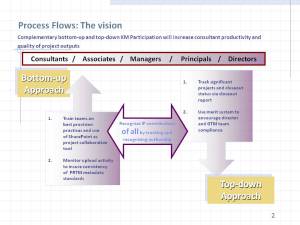 If the fallout from last night's afterglow is any indication Senator McCain has suspended his campaign against Senator Obama. Instead he has decided that American are so fed up with politics that they are likelier to vote for someone running against the land's highest office rather than running for it.
If the fallout from last night's afterglow is any indication Senator McCain has suspended his campaign against Senator Obama. Instead he has decided that American are so fed up with politics that they are likelier to vote for someone running against the land's highest office rather than running for it.How else to explain his Veep selection by a candidate who last month confessed to knowing little about a job that could make her less "productive" than she's been in her present post?
How else to rationalize McCain's need to keep his rally sizes managable so that football stadium crowd volumes don't swell his ego like the other guy?
How else to interpret his criticism of Obama's speeches as the work of a guy who's all talk? What does idle speech chatter have to do with executive action anyway? It's not like there's any proven connection between inspiring peoples' hopes and what they expect in return for raising them. As Jack Beatty points out Churchill wasn't a war strategist or an six sigma managerial black belt. The guy just made great speeches.
In Denver the flowery prose grew some meat on the bones. Political calculations were finally couched in terms of take home pay so that economic self-interest can be measured alongside the electoral counts. Here is where fogging the air with fuzzy math is a winning distraction for McCain.
In addition to confusing voters with too many numbers it also makes sense for McCain to remain on message. Stay negative. Going positive might be riskier than playing defense. And if Obama stays true to his new politics only McCain's own memory lapses and mental black-outs will give pause to GOP attacks.
The negative message is an economizing one. An accusation lands on its target and the audience processes the remark with only one question in-mind -- how will the accused respond?
A positive message takes much longer to be absorbed and believed. It's a defensive impulse that predates U.S. Presidential elections, perhaps even romantic betrayals. That's because survival trumps reality. That's because positive news forms an instant response before a question can even form. That reflex says: what's in it for you? What potential conflict-of-interest lies buried in your cheery delivery of your selective facts?
McCain would stop campaigning against an adversary so naturally gifted that his greatest weakness is perhaps his lack of shortcomings. The seemingly effortless intensity with which Obama comports himself inspires his fellow citizens in two opposing ways: awe and envy. There's very little McCain can do to neutralize the awe factor without stirring up resentments that fly back in his direction.
I would like to recommend a few additional steps to the GOP on this notion of campaigning against politics itself:
1. Update the I have a dream speech to pay more immediate dividends.
- Create a national lottery system to reflect an "I have a winning ticket" approach to early retirement and lower taxes.
2. Continue to make lower taxes the answer to every non-ethical problem the country faces.
- Obama dares to raise your expectations? You know how disappointed you'll be when your dreams are dashed. I will lower your expectations. You can leave them at curbside with the rest of your uncollected hopes.
3. Finally rather than railing against the Democrats as permissive white-flag waving wusses, McCain can lay his firebrand mantle at the foot of freedom's revenues.
- After two terms of taking on Whitewater investigations and then another two terms of capsizing in Blackwater contracts we can count on the Maverick Reformer. He can dry the dripping spigot of cronyism and patronage for good by taking the government private. That way we'll finally get the government we can afford. It's less than most of us hoped for this week in Denver.
And John McCain is just the leader we can count on to provide it.








